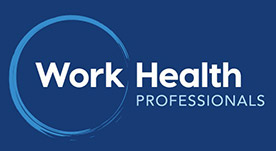Work Health Professionals provide onsite workplace vaccinations in Perth. We set up your Vaccination Program, coordinate pre-vaccination immunity screening, and manage all of your vaccination records. We work with you to set up your Immunisation Register
In line with your ‘Duty of Care’ under the Work Health and Safety Act 2020 (WHS Act) you have a requirement to provide a workplace vaccination program to protect those workers at risk of exposure to infectious diseases.
You are required to provide free of charge work vaccinations for workers who have an exposure risk to infectious diseases such as Hepatitis A, Hepatitis B and tetanus.
Work Health Professionals will fully manage your Vaccination Program.
Our onsite vaccination service is based on a minimum of 10+ people per site visit.
If you are unsure you can contact us to find out which vaccinations are recommended for your industry and job roles.
Vaccination programs - WA
In Perth, our workplace vaccination program experience includes:
- Health Care Worker vaccinations
- Aged Care worker vaccinations
- Government worker vaccinations
- Wastewater management vaccinations
- Cleaners vaccinations
- Plumbers and sewage workers vaccinations
- Medical research and scientist vaccinations
- Construction worker vaccinations
- Emergency services vaccinations
Our onsite workplace vaccinations can be tailored to meet your specific organisation's and workers needs and exposures. If you have already made a vaccination booking, you can find the Workplace Vaccine information sheets here.
Infectious diseases risk assessment
As part of your risk assessment for infectious diseases, you should review any roles and duties that may involve exposure to human tissue, blood or body fluids, potential exposure to used needles and other sharps such as broken glass and blades, and exposure to waste water and waste products.
Hepatitis B vaccinations
Hepatitis B vaccination is recommended for any workers who may be exposed to blood or other body fluids (not including saliva). The risk of infection by hepatitis B varies considerably according to the work environment.
Hepatitis B vaccinations are specifically recommended for staff who work in health care, disability services, correctional facilities and emergency services, as well as for cleaners, embalmers, funeral workers, tattooists, gardeners, security staff, and waste and recycling workers.
Where there is a significant risk of contracting Hepatitis B at work, a vaccination protocol should be included in your workplace policy for prevention and control of infectious disease.
Hepatitis B vaccination course
- A course of 3 vaccines given over a 6 month period.
- The dosing schedule is day 0, 4-6 weeks later and then at 6 months.
- Serological testing (blood test)
- Pre-vaccination serological testing is recommended for Hepatitis B. This involves a blood test which identifies those workers who are already immune to the Hepatitis B virus (from previous vaccinations or previous exposure). These individuals will not require vaccination. Booster doses of vaccine are not routinely required.
- Post-vaccination is usually only recommended for workers whose work involves frequent exposure to blood and body fluids (ie: healthcare workers), or in people with an impaired immune system. This is to confirm immunity and is usually done 4 to 8 weeks after the 3rd dose.
Resources for Hepatitis B workplace vaccinations
- WorkSafe have produced a useful Hepatitis B Q&A document looking at Hepatitis B in the workplace.
- You can also refer to the National Code of Practice for the Control of Work-related Exposure to Hepatitis and HIV (Blood-borne) Viruses [NOHSC:2010(2003)]
- As this can get confusing, we are happy to help answer any of your questions on where to start with a Hep B vaccination program.
Combined Hepatitis A and B immunisations
Hepatitis A and B vaccinations can be given using a combined vaccine where required - this vaccine is known as Twinrix.
Hepatitis A vaccinations
Hepatitis A vaccinations are recommended for plumbing and sewage workers, people who work in childcare and preschools, disability and aged care facilities, sex workers and workers living in or visiting rural and remote Indigenous communities or developing countries. This includes some health care workers.
- Hepatitis A vaccinations involve a course of 2 vaccines given over a 6-12 month period for long term protection.
- Where required, following a risk assessment, Hepatitis A vaccination should be provided free of charge to employees.
Vaccinations for wastewater/sewage workers
The Australian Immunisation Handbook recommends Hepatitis A and Tetanus vaccinations for these workers. If your workers require immunity to Hepatitis A and they have no record of previous vaccination, they should receive the vaccine.
Tetanus vaccinations
Tetanus is caused by a bacterium found in soil. The bacteria can enter wounds and produce a neurotoxin that acts on the central nervous system to cause muscle rigidity with painful spasms.
Tetanus-containing vaccines prevent disease by making antibodies that bind to the toxin, rather than the bacteria.
- Tetanus vaccination, often referred to as a tetanus booster, is one vaccination and is required every 10 years.
Whooping Cough (pertussis) vaccinations
Whooping cough is an extremely contagious respiratory infection caused by the bacterium Bordetella pertussis. The disease causes uncontrolled coughing and vomiting, which can last for several months and can be particularly dangerous for babies under the age of 12 months.
- A single booster dose of pertussis containing vaccine (ie: Boostrix or Adacel) is recommended for all adults who work in healthcare and with young children especially childcare workers if they have not received the vaccine in the previous 10 years.
- A 10 year booster dose is recommended
